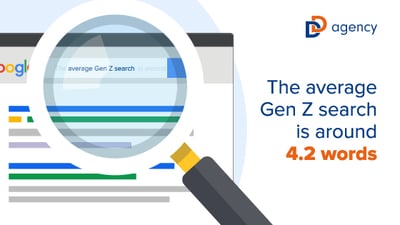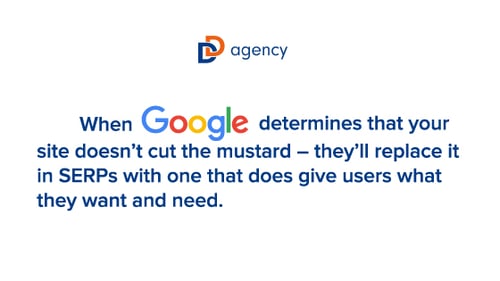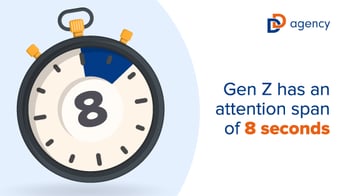SEO for Schools: The Philosophy Behind Keyword-smithing Content

June 22, 2021

Spoiler alert #1: This blog is written with ~1,000 words.
Spoiler alert #2: This blog is written with just 3 keywords in mind.
Keywords are terms that people are searching for online; they can be single words or phrases. While all the words in this blog strung together have a purpose — to shed light on the topic of SEO for people working in the education industry, mainly those who want to better understand its value and how to get the ball rolling for their institutions — the keywords are the most critical for the aim of helping people find this content organically.
Words in the age of SEO are critical to your education marketing plan. They serve as a bridge between the user and your website. And because of this, we need to think about the invisible algorithmic audience that reads ALL of our website material and blog content — thus using our words to connect us to our future customers and alumni.
Why Words Matter
As you consider the critical nature of search keywords, remember that the words you choose can set you up for three powerful outcomes:
1. Connect.
Get your audience from the search bar to the institution's website
2. Engage.
Hold the audience's attention with the right content
3. Impress.
These same words will build (or erode) trust with your institution's brand
A Critical Connection
The matchmaker role that keywords play between an audience and an institution is fascinating and dynamic. This role is enabled via two distinct search types:
1. Branded Search.
According to PPCExpo, branded search is "...a search engine query that includes your name or branded keyword. This ultimately produces results involving your name or brand."
In the case of colleges or universities, think about a prospective student typing in the name of your institution (or even a part of the name), a proper name of a professor or building or coach, or anything of that nature. You might think ‘well that’s easy, we own that space.’ But it isn’t always that easy.
It is possible that your institution might not hold the top spot in these branded search results, even though your name is what has been typed in!
 I know this sounds ludicrous, but there are a number of technical and/or content-related factors that search engines factor into the algorithm that could be preventing you from owning your branded space. And, it’s okay to admit that your institution needs help on the branding side of things (you are not alone). Gen Z is NOT a generation of loyalists. With the internet and mobile devices, they are used to searching for everything. The good news is that this can be tested and fixed. (If you are interested in knowing more, schedule a meeting with our team).
I know this sounds ludicrous, but there are a number of technical and/or content-related factors that search engines factor into the algorithm that could be preventing you from owning your branded space. And, it’s okay to admit that your institution needs help on the branding side of things (you are not alone). Gen Z is NOT a generation of loyalists. With the internet and mobile devices, they are used to searching for everything. The good news is that this can be tested and fixed. (If you are interested in knowing more, schedule a meeting with our team).
2. Off-Brand Search.
Intuitively, these terms do not contain any of your branded keywords. Improving your off-brand search game can significantly show results when it comes to the open-ended search that happens most of the time.
Here is an example: When a student in my region (which has a ton of college choices) is looking for “bachelor’s english programs in Philadelphia”, this is off-brand search. There is no mention of a specific college or faculty member. This student is looking on a bigger industry-wide level and they added some geographical information to narrow the results.
 (about 5% longer than previous generations)
(about 5% longer than previous generations)
Fun fact (to nerds like us): The average search of a Gen Z student includes more distinct words than searches by earlier generations; they are more descriptive. These are referred to as “long tail keywords.” The assumption for higher education institutions is that this group of prospective students is more likely doing off-brand search (using more words to speak on an industry level but giving some details). That’s a nice tip to know when you’re charged with recruiting college students.
A Sustained Engagement
The “right” keywords and phrases are not only crucial to initially connecting your audience from the search engine to your .edu site, but these words will also keep users engaged with the website.
For instance, if we use the same long tail search that we used above (“bachelor’s english programs in Philadelphia”), we should not end up on a nursing class visit page or an MBA program info page. If your institution is fortunate enough to own one of the top spots on Google for a search like this, the prospective student should land on a page that is connected to the content they are hunting for. If your website doesn’t provide good information on the items that are related to the search that was punched in, this user won’t be staying on your site very long... and they certainly won’t move further down the funnel.
 Source: Search Engine Journal
Source: Search Engine Journal
All this to say, a good SEO strategy is NOT just about the initial connection, but it’s about getting the user to a place where they want to dig in further (through good content and navigation).
A Lasting Impression
Building your brand is hard work; it takes time and accuracy to get it right. In fact, the job will never be quite done (after all, algorithms and search behaviors of humans will change over time). However, if the words you employ can connect you with the audience and promote engagement with them, your institution will be well on the way to forming a lasting impression with the audience. I tend to view this process like a math equation.
IF...
The words your institution relies on will reinforce within the search audience that they found the right place — they made the right choice in their simple click,
AND...
Your content and the technical design of your website are functioning properly,
THEN...
A lasting impression between provider and consumer will follow.
Spoiler alert #3: The keywords we wove into this article are “seo for schools,” “education marketing plan,” and “recruiting college students.” If these are things that matter to you as well, and you find the content helpful, then keep enjoying the content and we’ll keep creating it.
.jpg) EBOOK
EBOOK
See how schools are using HubSpot for their enrollment marketing
Service Categories: Digital Advertising, SEO, Creative & Content, Website Design & Development, Search Optimization






.png)


.png)